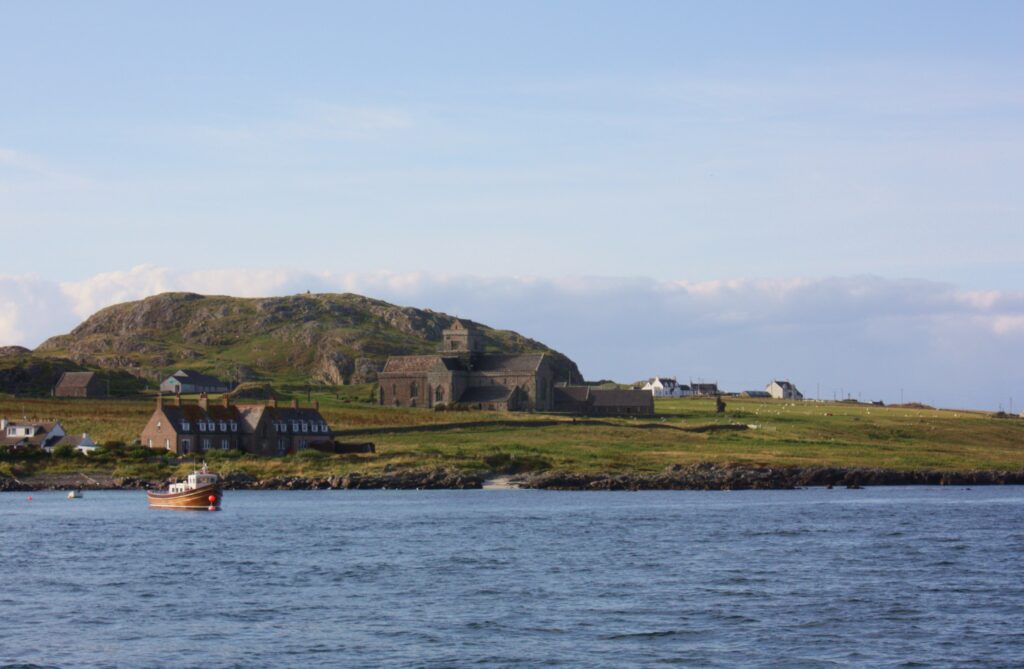Iona and Oswald

As Oswald and his small band of men rode across the country, probably taking the Stanegate, the old Roman military road that ran south of the Wall, they could not have known that the battle they were riding towards would be so important.
Apart from the retainers who had accompanied his family into exile, Oswald also had under his command his younger brother, Oswiu, and some warriors from Dal Riada, tied to him through the bonds of loyalty forged on battlefields and given leave by their king to throw in their lot with the young pretender.
A key factor in King Domnall Brecc’s decision to allow his men to go with Oswald was the attitude of Iona. But when the abbot, Ségéne, assured Domnall Brecc that Oswald had the blessing of Columba, then the decision was clear. For the warriors of the time, Christian or pagan, the power of saints or gods was a key factor in their calculations.
A battle is never certain. But in the 7th century, when battles were fought between small armies often consisting of less than a hundred men, the valour of a single warrior could turn defeat into victory. In the same way, an unlucky chance – a warrior slipping, a sword breaking, an arrow piercing a broken mail ring – could precipitate defeat, particularly when kings fought as fulcrums of their war bands. Kill the king and the battle was won.
0 Comments